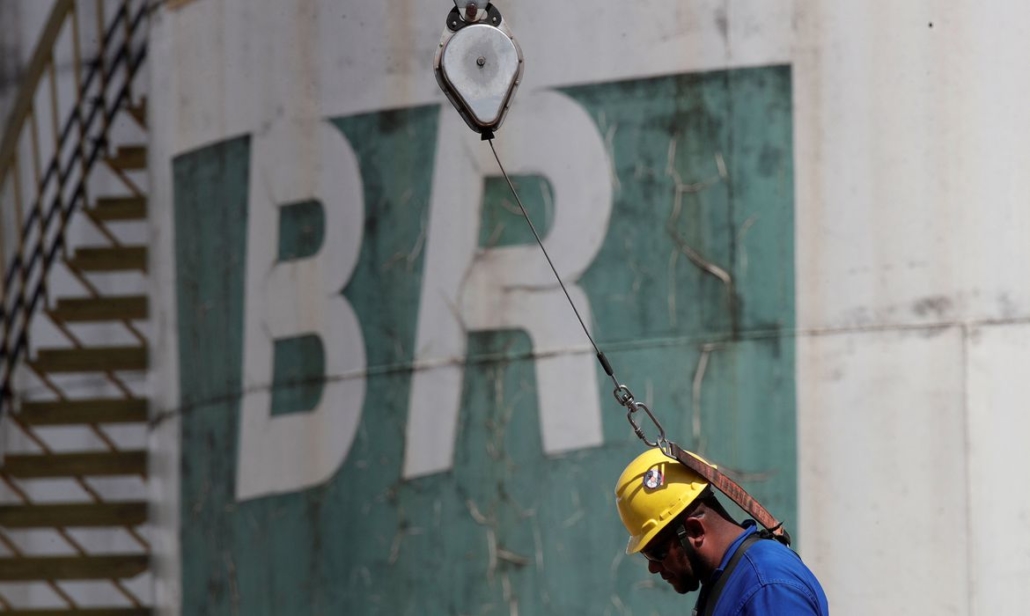Strategic plan reiterates priorities in deep water oil
12/05/2022

Petrobras’ oil target for the next five years, according to the 2023-2027 strategic plan, is aligned to the previous plan — which did not take the market by surprise. It ratifies the state-owned company’s priority to invest in the deep-water oil. However, a lower oil production forecast for the period drew attention, not because of volume, but for the company’s attention to the natural decline of those fields, which will require new contributions to maintain the desired production level.
Petrobras projects for 2023 a production of 2.6 million barrels of oil equivalent per day (boe/day), a measurement unit that includes the extraction of oil and natural gas, which translates into an operated production (in partnership with other companies) of 3.8 million boe/day, according to Fernando Borges, the head exploration and production, when presenting the 2023-2027 strategic plan last week.
The extracted volume would reach 3.1 million boe/day in 2027, the same estimated for 2026, with production operated at around 4.7 million boe/day. “Production is increasing,” the executive also said, “due to the development of assets in terms of pre-salt development mainly in this leverage period.”
In 2023, 74% of production will come from the pre-salt, rising to 78% in 2027. The figures are very close to those indicated in the 2022-2026 plan. However, Petrobras has indicated a reduction in production by 100,000 barrels per day, due to two reasons. The first cause is the co-participation agreement in the fields of Sépia and Atapu, both in the Santos Basin pre-salt.
According to Petrobras, this adjustment was necessary because the strategic plan 2022-2026 was released on November 24, 2021. A month later, on December 17, 2021, Petrobras acquired, in consortium with partner companies, the rights to exploration and production of the volumes exceeding the transfer of rights in the two fields, in the Second Round of Bids for the Surplus of the transfer of rights under the production-sharing regime for pre-salt oil fields.
Since the fields were under two regimes (transfer of rights and sharing), adjustments were needed in the participation of the companies in the fields. The 2023-2027 plan, in practice, reflects those adjustments, which resulted in a lower production projection. Another reason are adjustments in the interconnection schedule between wells, in the years 2024 and 2025, which were offset by the company’s total and commercial production projections.
For Ilan Arbetman, the chief economist of Ativa Investimentos, the loss of production in these years is compensated in the future with more value generation for Petrobras. “It’s something that brings efficiency gains in the future,” said Mr. Arbetman.
Mr. Borges highlighted the 9% increase in investments in exploration in new areas, to $5.5 billion, focused on replacing the production that will be lost with the natural decline of the fields in production. According to him, “we are fighting against a natural decline of about 10% a year. This means adding 300,000 boe/day to production in order to cope with the decline and maintain production at around 3 million barrels. One of the focal points is the Tupi field, one of the biggest producers in the pre-salt. According to Mr. Borges, Tupi is a field that will need to increase water injection, a technique used to extract more oil from reservoirs.
Petrobras raised its investment forecast for the next five years by a little more than $7 billion, to $64 billion, due to the incorporation of the Sepia and Atapu fields to Petrobras’ portfolio, among other reasons. Two-thirds of this amount is still destined for the pre-salt. Post-salt areas in the Campos and Sergipe-Alagoas basins will demand 24% of this amount, two percentage points less than the previous plan, but, according to Mr. Borges, the planned investment of $18 billion in the Campos Basin aims to offset the decline of other fields.
For financial services provider UBS, Petrobras was conservative in the production target, when considering, also, delays in the operation of fields in the Sergipe-Alagoas basin. UBS highlighted, however, the resilience of the projects in a stress scenario, with a barrel price at $35, and the 18 new platforms (FPSO, the acronym in English) starting operations, half of the new units in the world.
*By Fábio Couto — Rio de Janeiro
Source: Valor International
